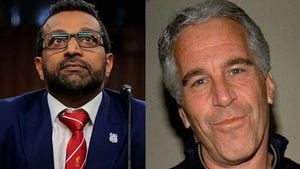Luigi Mangione, the 27-year-old Maryland native accused of murdering UnitedHealthcare CEO Brian Thompson, now finds himself at the center of a fierce legal battle over the death penalty, the politicization of justice, and the spectacle of high-profile prosecutions. As the case unfolds in New York’s federal courts, Mangione’s defense team is waging a vigorous campaign to have the federal indictment dismissed or, at the very least, to bar prosecutors from seeking the death penalty—arguing that a "torrent of prejudice from multiple public officials" has made a fair trial impossible.
According to filings made public on September 20, 2025, Mangione’s attorneys claim that the prosecution, led by U.S. Attorney General Pam Bondi, has violated Mangione’s constitutional rights from the very start. The most glaring example, they say, was a "dehumanizing, unconstitutional" perp walk: Mangione, shackled and flanked by armed officers (including New York Mayor Eric Adams), was televised clambering out of a helicopter on his way to his first court appearance. As reported by Reuters and ABC News, defense lawyers Karen Friedman Agnifilo and Avi Moskowitz described the event as "a scene out of a Marvel movie," arguing, “This was done solely to prejudice him and without the slightest legitimate law enforcement objective.”
The case against Mangione stems from the December 4, 2024, shooting of Brian Thompson outside a Midtown Manhattan hotel, where Thompson was attending an investor conference. Surveillance footage captured a masked gunman shooting Thompson from behind as he arrived at the venue. Police later revealed that the ammunition used in the attack had the words “delay,” “deny,” and “depose” scrawled on it—an apparent reference to common criticisms of insurance company practices, as noted by Patch. Mangione was arrested five days later in Altoona, Pennsylvania, carrying a 9mm handgun and a notebook allegedly describing his intent to "wack" an insurance executive.
Mangione faces four federal charges, including one death-eligible count of using a firearm to commit murder. He has pleaded not guilty to all federal and state charges. The federal indictment, handed down after a grand jury vote on April 17, 2025, made Mangione eligible for the death penalty if convicted. The defense, however, insists that the indictment itself was tainted by what it calls an "orchestrated effort to secure a death-eligible indictment... and achieve maximum publicity in the process." In their motion, Mangione’s lawyers wrote, "Because of the blatant, intentional and damaging nature of this torrent of prejudice from multiple public officials, mainly the United States Attorney General, from the inception of this case through the grand jury vote... the death penalty indictment against Mr. Mangione must be dismissed."
Attorney General Pam Bondi’s role in the controversy has been especially contentious. On April 1, 2025, Bondi directed federal prosecutors to seek the death penalty, stating, "Mangione’s murder of Brian Thompson -- an innocent man and father of two young children -- was a premeditated, cold-blooded assassination that shocked America." Defense attorneys have criticized Bondi’s announcement as "unapologetically political," arguing that she and other officials placed "their own, and their administration's, political agendas above the constitutional safeguards assured to every criminal defendant, and especially one facing a death sentence." The defense further claims that Bondi broke with established Department of Justice protocols by rushing the decision without a thorough investigation or giving the defense a chance to respond, as reported by Reuters and ABC News.
Public reaction to the case has been deeply divided. While officials have condemned the killing, some Americans have expressed sympathy for Mangione, citing widespread frustration with the power of health insurers and the high cost of healthcare in the United States. The case has also reignited concerns about escalating political violence, particularly after the recent assassination of conservative activist Charlie Kirk. Bondi herself labeled the killing "an act of political violence," despite the fact that Thompson was neither a politician nor an activist, a characterization the defense says further prejudiced the proceedings.
The legal saga has unfolded on two fronts: federal and state. On September 16, 2025, New York State Supreme Court Judge Gregory Carro dismissed two terrorism-related murder charges against Mangione, including one that carried a mandatory life sentence. According to ABC News and Patch, Judge Carro found the evidence insufficient to support the terrorism charges but refused to dismiss another second-degree murder charge. "We respect the Court's decision and will proceed on the remaining nine counts, including Murder in the Second Degree," the Manhattan District Attorney's Office stated following the ruling. Mangione now faces up to life in prison if convicted in his state case, though New York’s death penalty has been unconstitutional since 2004. The next state hearing is scheduled for December 1, 2025, with no trial date set.
In the federal case, U.S. District Judge Margaret Garnett is overseeing proceedings. The Manhattan U.S. Attorney’s Office has until October 31, 2025, to respond to the defense’s motion to dismiss the indictment or bar the death penalty. If Garnett allows the death penalty to remain an option and Mangione is convicted, the same jury would then decide whether he should be executed. Mangione’s next federal court appearance is set for December 5, 2025, and a trial could be scheduled for 2026, as Reuters reported.
Throughout the legal wrangling, Mangione’s background has also come under the spotlight. Defense attorneys have described him as a former honor student and class valedictorian from Maryland, known to friends as "kind" and "intelligent." "He is now fighting for his life against a government that seeks to execute him," the defense wrote in their filing, as cited by Bloomberg.
Meanwhile, the prosecution has remained largely silent on the defense’s latest motion. A spokesperson for Manhattan U.S. Attorney Jay Clayton declined to comment. State prosecutors have indicated their intention to bring the state case to trial before the federal proceedings, though the timeline remains uncertain.
As the December court dates approach, the legal and political drama surrounding Luigi Mangione’s prosecution continues to intensify. With the future of the death penalty in this high-profile case hanging in the balance, the eyes of the nation—and indeed, many with strong views on the justice system and healthcare—remain fixed on the Manhattan courthouse.
The coming months promise pivotal developments that could reshape not only Mangione’s fate but also the broader conversation about fairness, politics, and the spectacle of American justice.







